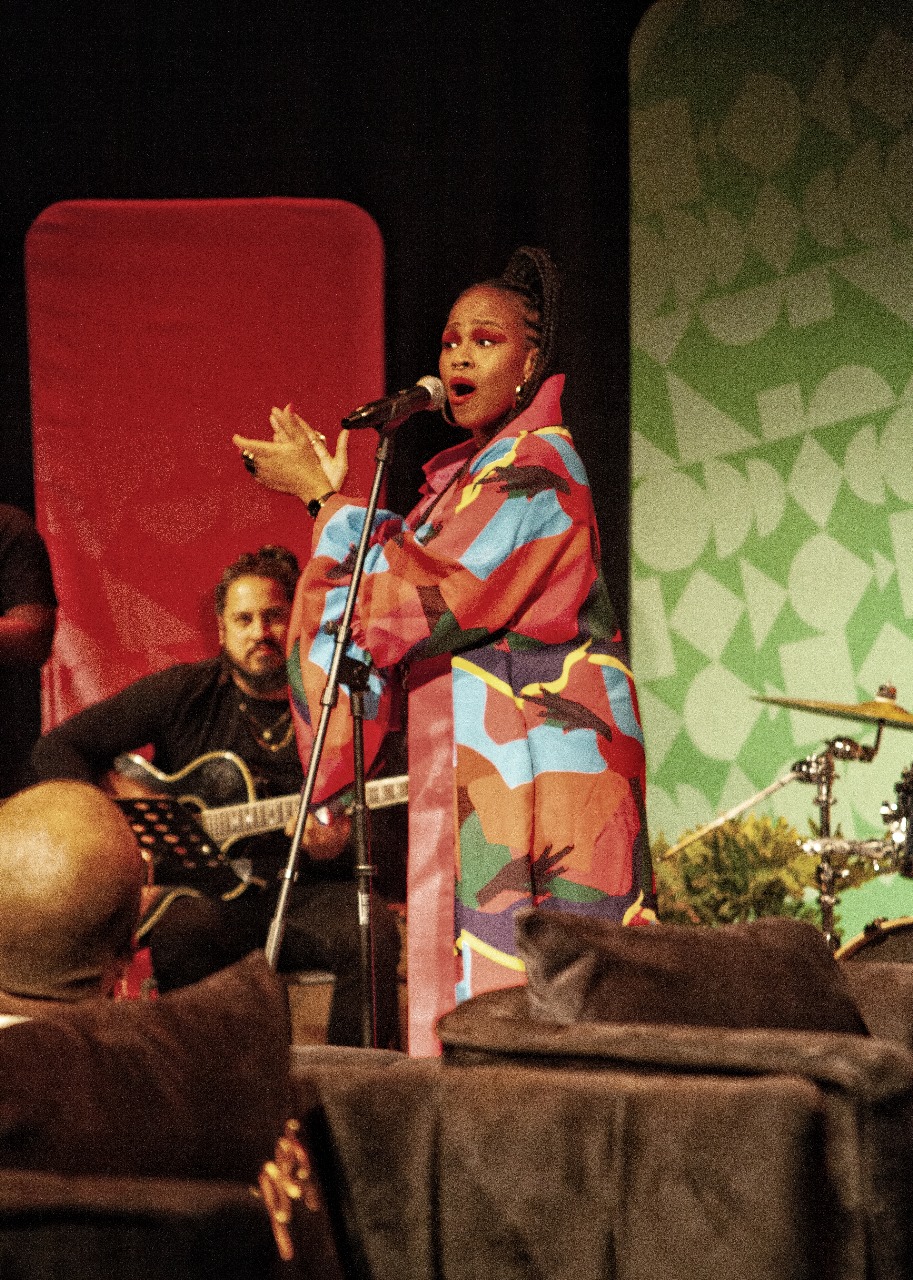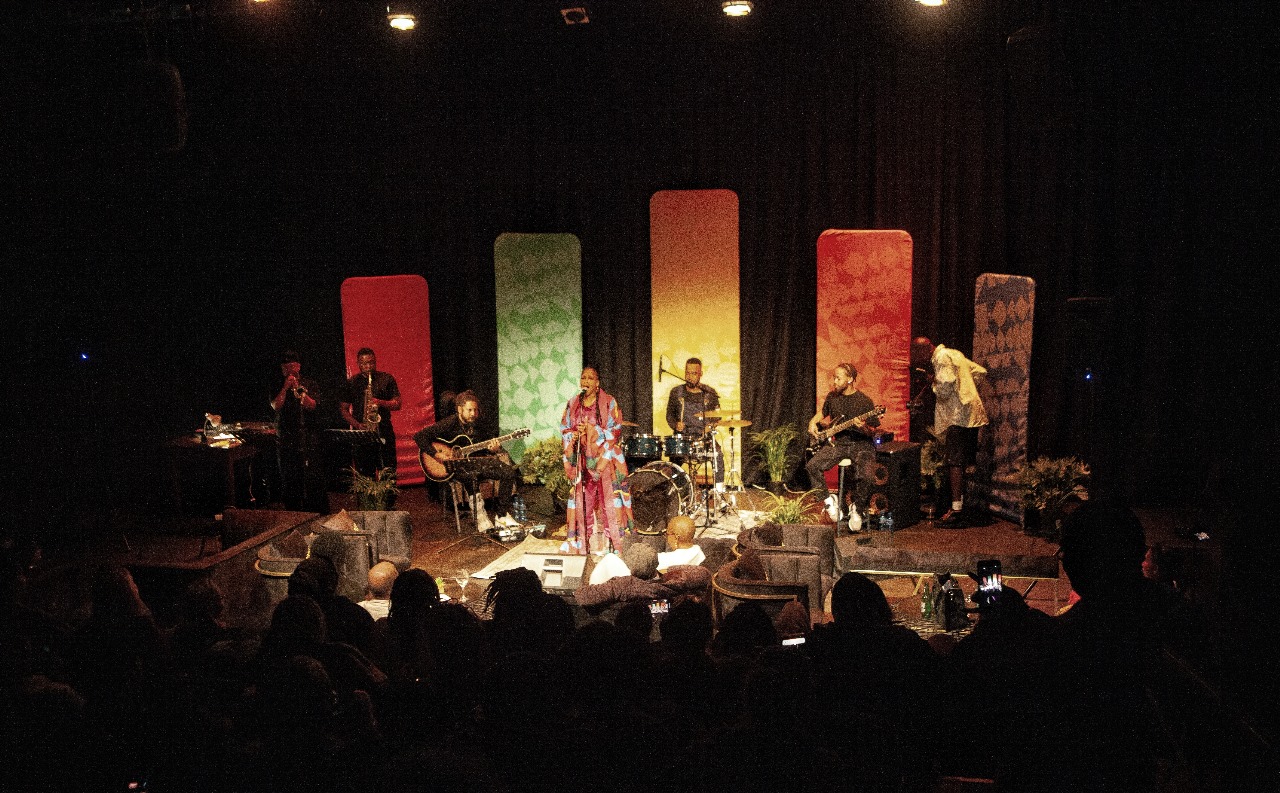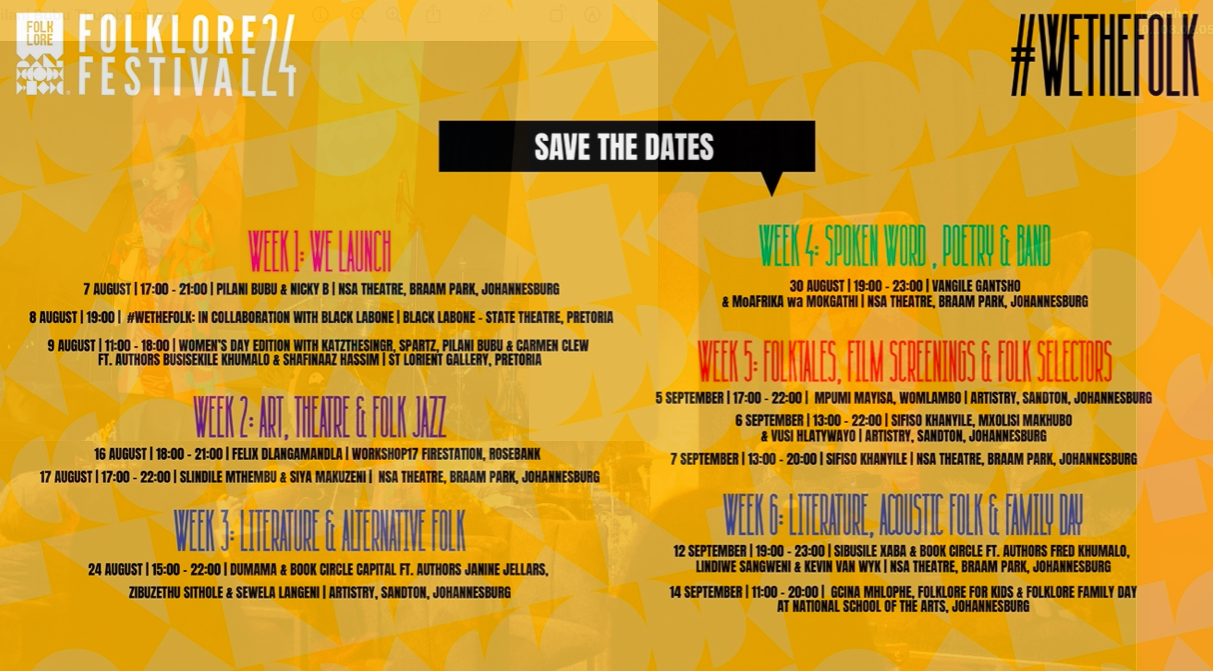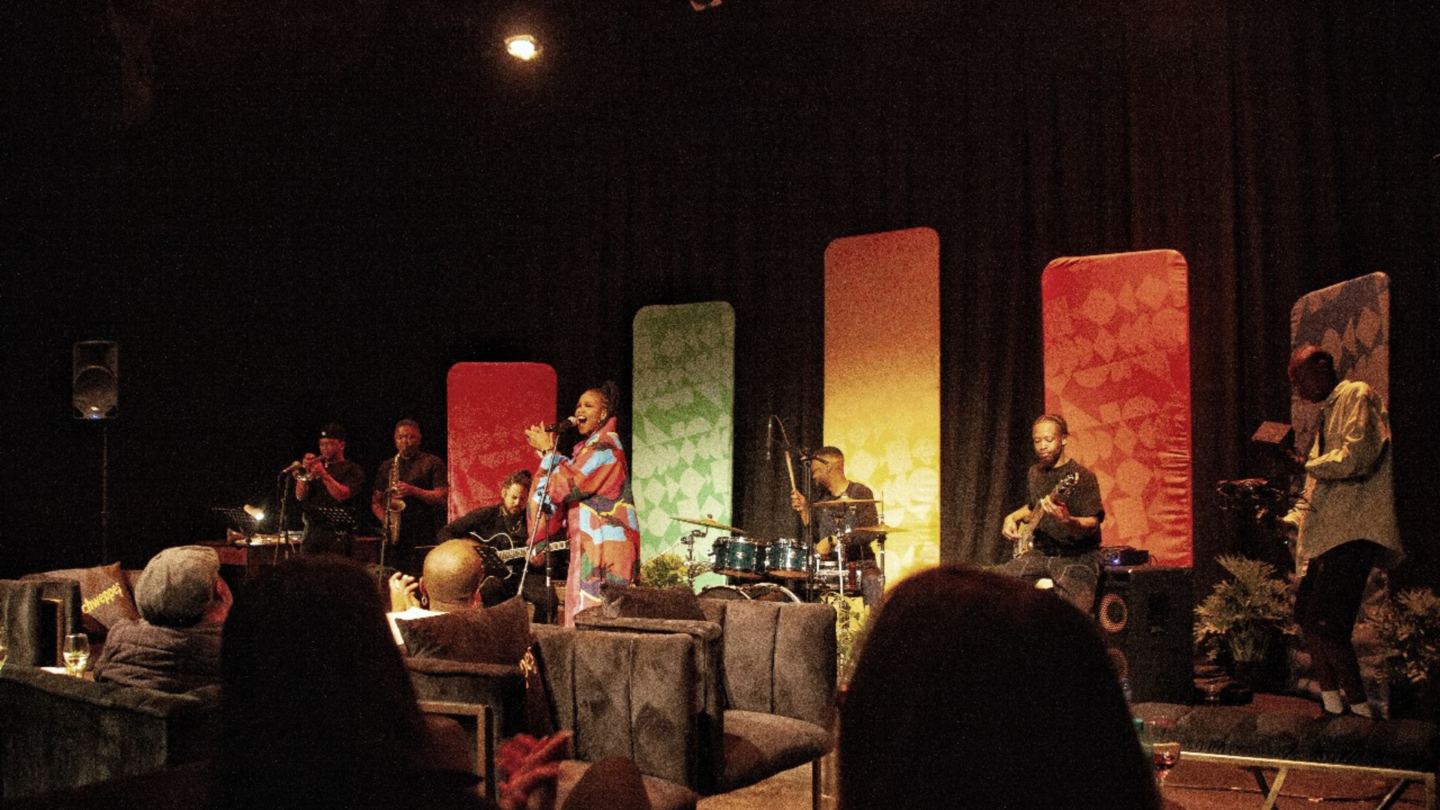Though I was not at all invited nor prepared, I found myself rushing from one media event to another at the behest of my fellow culture-loving writer friend, Edward Tsumele. Upon arrival, we reckoned that rushing was futile as we waited quite some time before the show began. The poor timing did however turn out to be a blessing in disguise as we found ourselves enjoying sundowners on the famous National School of the Arts (NSA) lawn—a somewhat pitiful endeavour considering Eddie’s newfound yet strangely steadfast teetotalism.
Once the show was underway, I was exceedingly thrilled to not only be fed with yummy mutton curry. On top of that, the incomparable Robin Fassie was part of the ensemble and surprisingly, I was whisked backstage for an impromptu interview with not only the director of the Folklore Festival but also the star of the well-attended evening, Pilani Bubu.
Here’s how it went:
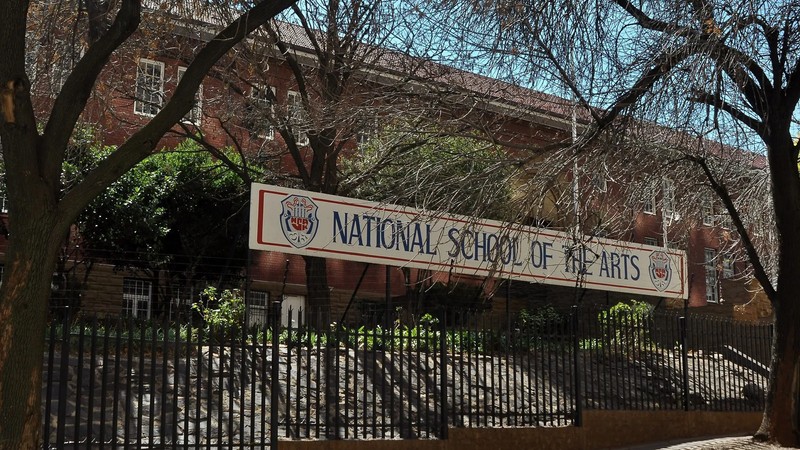
Thembeka Heidi Sincuba: How are you today?
Pilani Bubu: I’m doing well, thank you! I’m excited that this day has finally come. It’s been a year in the making, with so much planning and narrowing down the timing, but we’re ticking boxes and staying present, which feels great.
THS: Amazing. What does it mean for you to be at the NSA venue? Why did you choose this specific space?
PB: Back in 2021, before our first festival, I wanted a place to connect with young people, focusing on intergenerational dialogue and making spaces where kids benefit from our heritage and identity. We’ve held the festival here in 2022 and 2023, so it feels like coming home. The NSA Theatre also needs exposure and funding, so highlighting art schools like this one is crucial for keeping our creative culture alive.
THS: There’s a linguistic current in the music industry—using English to reach a larger audience versus staying true to your roots. How do you navigate that?
PB: It’s interesting you call it a current because I’ve seen trends ebb and flow in my 12-year career. My first two albums were in English, but I realized that what I could offer the world were stories about us—our language, rhythm, and culture. I’ve since started incorporating Xhosa, Setswana, and other indigenous languages in my music. It’s about authenticity, but I’m also a child of the ’90s, fluent in both English and Xhosa, and I believe these languages can coexist and build something new.
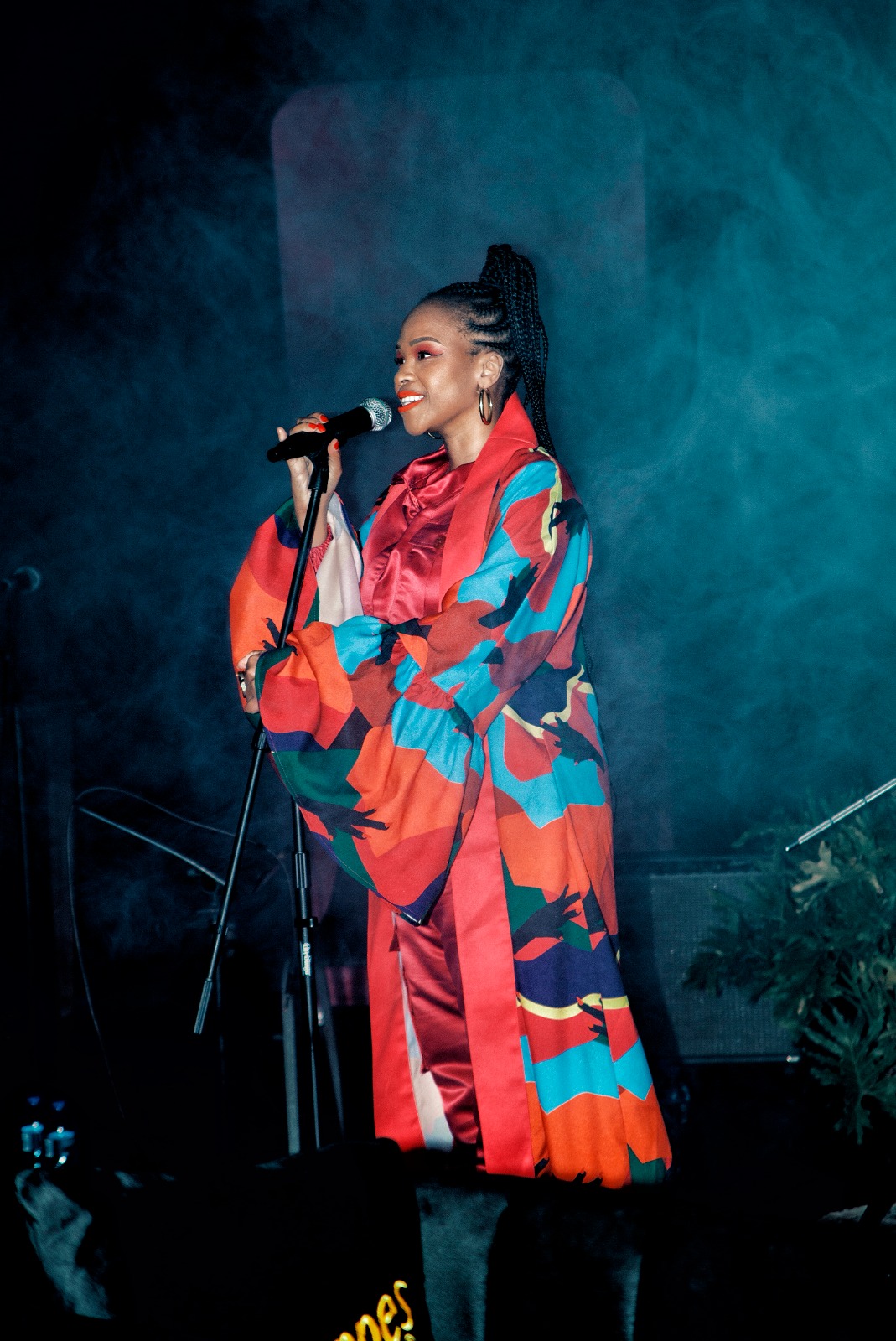
THS: I’m interested in the margins. Like being not necessarily what the masses love, but like creating your own space. And I feel like folk music kind of does that. And it takes a lot of bravery and a lot of foresight to look beyond what’s happening this year or next year or the next five years. To have confidence in yourself and understand that you don’t need the popularity of now. But of course that must be difficult, right?
PB: Folk music is the kind of music that we all agree reminds us of something familiar to all of us. Yeah. And we’ll always stay nostalgic and that keeps the classicness. Folk music is also storytelling music. […] And folk music is us. Music. So it’s community music, which means that within that story, you’re also telling something that resonates with someone. And then you would have captured a time. And I think what you’re describing over time, what happens is that that becomes classic.
[…] And it doesn’t need to feel like pop at any given time. And then from my perspective as an artist in my individual journey, I’ve made some very interesting, I guess I would say like original choices because when I came into this 12 years ago I quit my corporate job and I asked myself if I would contribute to anything in the world where it pertained to change and music being my lowest hanging fruit because sometimes I’ll go I can speak I’d like to speak more than I, I sing, but I can do both these things equally.THS: I see Robin and Keenan are here and I’m so excited! You’ve worked with many artists, and it seems like there’s a close-knit community. How do you see the fan culture in South Africa evolving?
PB: South Africa’s fan culture is still growing. Unlike the US or Europe, where entertainment culture is well-developed, here, artists often have to be their own promoters, which is challenging economically. The trendiness of jazz, for example, can be limiting when niche acts compete for the same audience. We need to work on building a culture that supports a diverse range of artists without fragmenting the audience. Mass media plays a big role in this by often dictating what people should like, rather than fostering new discoveries.
My questions were thick and fast, and I was keenly aware that other journalists were looming but the fact that the whole affair was so rushed made it all the more enjoyable. During my impromptu escapades, I bumped into the likes of my fellow BGC comrade in arms Mpumi Mayisa, Urban Village bassist Simangaliso Dlamini, and recent interviewee Siyabonga of Siyababa Atelier and found that other lovers such as Womlambo, Sibusila Xaba and Dumama would be part of the festival.
Quick as it was, it was enough for me to deduce that this festival has a frighteningly bright future, especially with Bubu at the helm. For a night I never foresaw, it went exceptionally well, so I can only recommend that my dear reader attend this well-organised and thoughtful festival which stands as a shining beacon of the resourcefulness of South African creatives. Even though life in Mzansi is hella unpredictable—I’m certain only good things can come of this. Click here for more deets.
